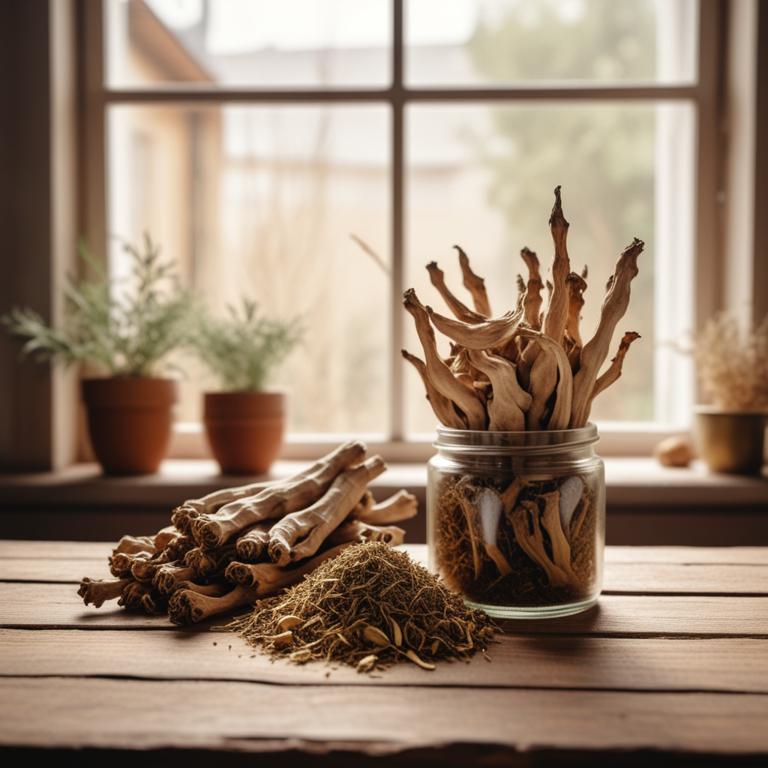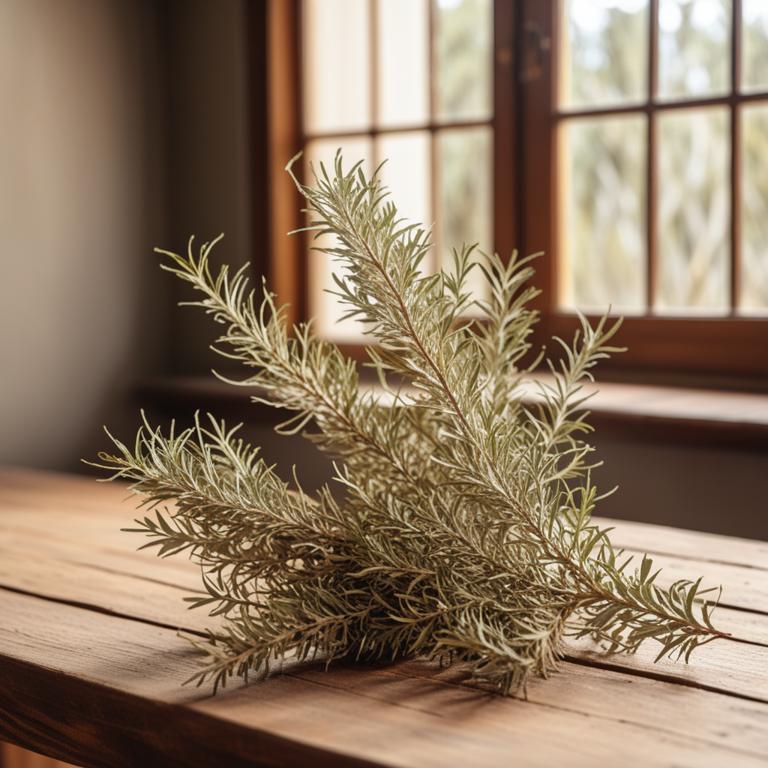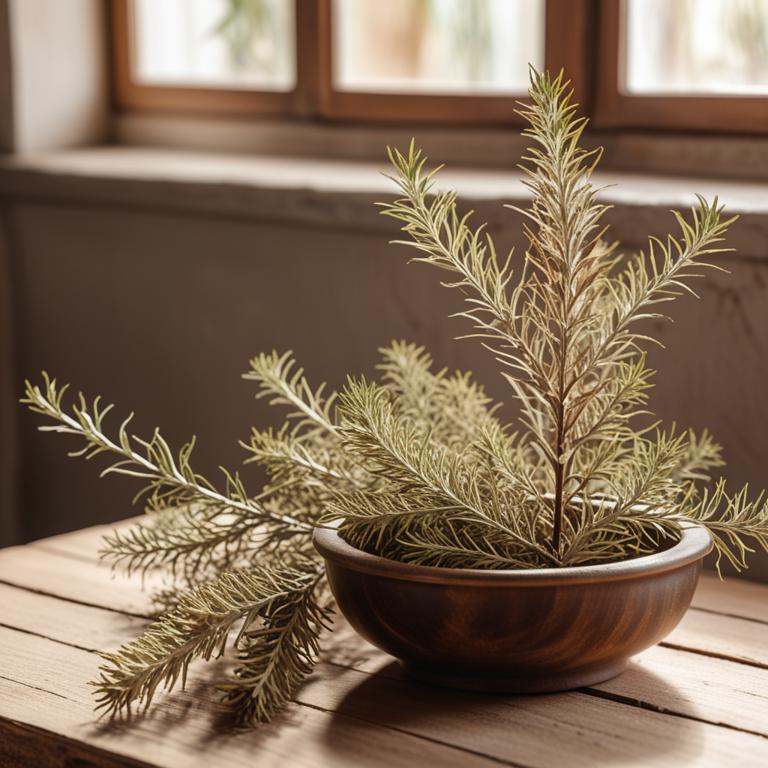Updated: Dec 1, 2024
Natural Post Nasal Drip Relief with Medicinal Herbs and Herbal Preparations
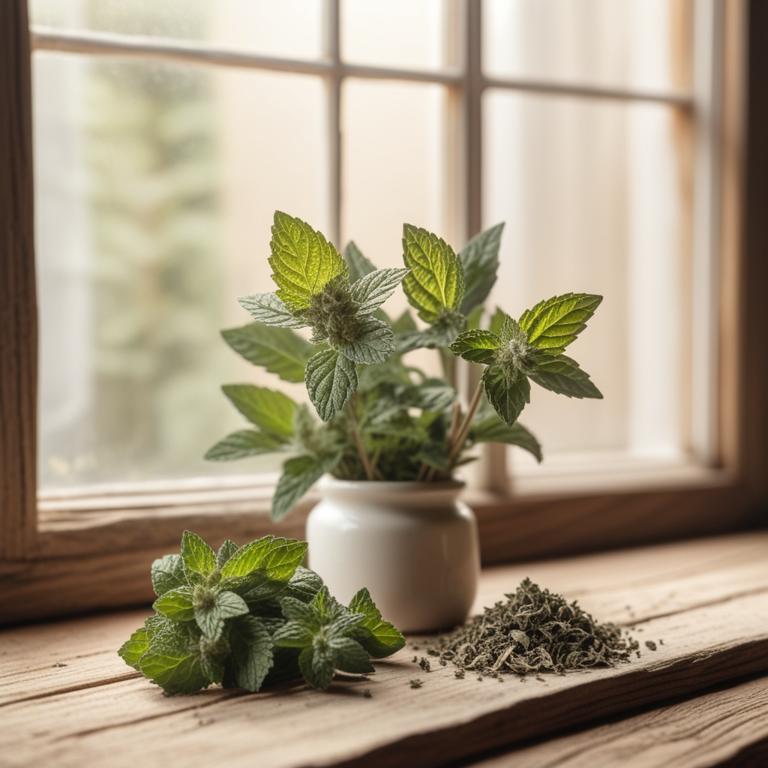
Post nasal drip, or PND, is a common condition where a thin, sticky liquid flows from the back of your nose down the back of your throat.
It can be annoying and disrupt your daily life, making you feel like you're constantly clearing your throat or having to blow your nose. But what's behind this constant flow?. Typically, it's caused by allergies, colds, sinus infections, or even acid reflux. When you have PND, it's not just the constant dripping that's the problem - it's also the risk of developing infections or irritation in your throat.
So, what can you do to help ease the symptoms?. Herbs like thyme, eucalyptus, and peppermint have natural anti-inflammatory and decongestant properties that can help soothe your nasal passages and reduce the flow of mucus. You can try drinking thyme tea, which is made by steeping thyme leaves in hot water, or inhaling the steam from a eucalyptus-infused inhaler. Peppermint tea can also help calm your throat and reduce congestion. Additionally, you can try using a neti pot with a saline solution and adding some dried eucalyptus leaves to help clear out your nasal passages.
These herbal remedies can provide some much-needed relief from the discomfort and disruption of post nasal drip.
Table of Contents
- What causes the symptom of post nasal drip?
- What benefits of using herbs should be considered for post nasal drip?
- What medicinal herbs are commonly used to alleviate post nasal drip?
- What are the herbal remedies most often used to address post nasal drip?
- What herbs are contraindicated for individuals with post nasal drip?
- FAQ
What causes the symptom of post nasal drip?
The main causes of post nasal drip are often related to the nasal passages and sinuses.
One common cause is allergies. When you're allergic to something, like pollen or dust, your body produces extra mucus to try and fight it off. This excess mucus can drip down the back of your throat, causing post nasal drip. Another cause is a cold. When you have a cold, your nasal passages become inflamed and produce more mucus.
This mucus can be thicker and more difficult to clear out, leading to post nasal drip. Sinusitis, or an infection of the sinuses, is also a common cause. When your sinuses become infected, they can produce a lot of mucus, which can drip down the back of your throat and cause discomfort. Interestingly, post nasal drip can sometimes be a symptom of post nasal drip itself. This might seem confusing, but it's a common cycle: the irritation and congestion caused by post nasal drip can lead to more mucus production, which in turn can cause more post nasal drip.
This can create a cycle that's hard to break.
What benefits of using herbs should be considered for post nasal drip?
Using herbs for post nasal drip can bring relief from congestion and excess mucus.
These herbs are often natural decongestants, helping to loosen and clear out mucus that's clogging your nasal passages. They can also reduce inflammation and swelling in the nasal tissues, making it easier to breathe and feel more comfortable.
Additionally, some herbs have antibacterial properties that can help fight off infections that may be contributing to your post nasal drip. By promoting healthy mucus production and drainage, these herbs can help prevent future episodes of congestion. They can also help soothe and calm irritated tissues, reducing the discomfort and annoyance associated with post nasal drip.
By incorporating these herbs into your daily routine, you may find that you're able to breathe more easily and feel more refreshed and energized.
What medicinal herbs are commonly used to alleviate post nasal drip?

If you're dealing with post nasal drip, you might want to try using some herbs to help alleviate the issue.
Eucalyptus globulus, also known as blue gum eucalyptus, is a popular choice because its essential oil has natural decongestant properties that can help loosen and clear out mucus. It also has anti-inflammatory properties that can soothe a sore throat and reduce congestion. Echinacea purpurea, or coneflower, is often used to boost the immune system, which can help your body fight off infections that can cause post nasal drip. It also has anti-inflammatory properties that can reduce swelling and discomfort in the nasal passages.
Zingiber officinale, or ginger, has natural anti-inflammatory properties that can help reduce swelling and discomfort in the nasal passages. It also has a natural expectorant effect, which can help thin out mucus and make it easier to expel. Thymus vulgaris, or thyme, is a natural antiseptic and antibacterial agent that can help fight off infections that can cause post nasal drip. It also has natural decongestant properties that can help loosen and clear out mucus. Ginkgo biloba, or maidenhair tree, is known for its ability to improve blood flow and reduce inflammation in the nasal passages.
This can help reduce congestion and discomfort caused by post nasal drip.
What are the herbal remedies most often used to address post nasal drip?
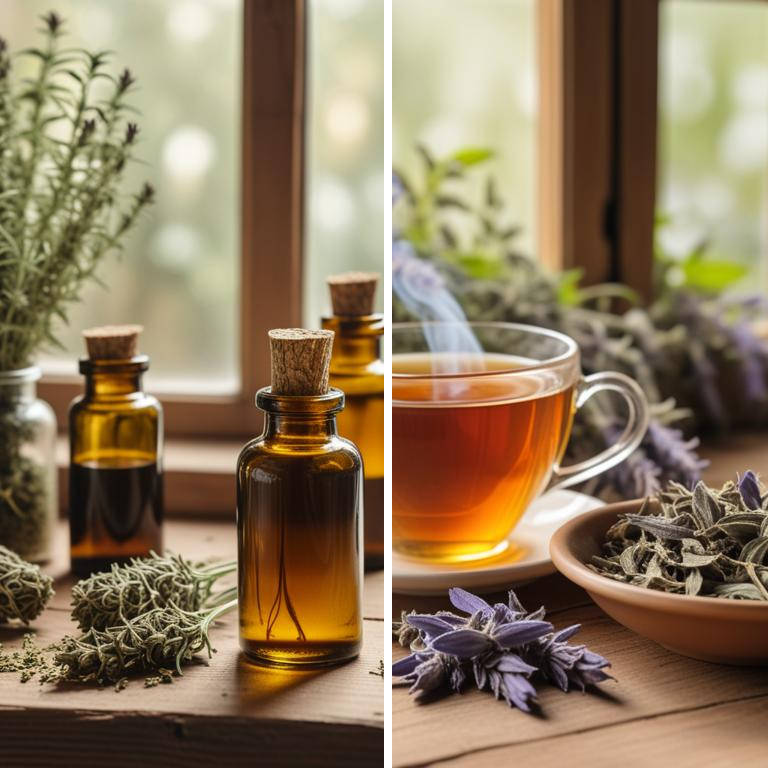
Herbal preparations can be a great way to deal with post nasal drip.
A decoction is a strong liquid made by boiling herbs in water, and it's perfect for treating thick mucus. Herbs like thyme and eucalyptus have natural decongestant properties that can help break down the mucus and clear your sinuses. A tincture is a concentrated liquid made from herbs that are soaked in a solvent like alcohol or glycerin. Tinctures of herbs like peppermint and ginger can help soothe an irritated throat and reduce inflammation, making it easier to breathe.
You can also try drinking herbal tea to help with post nasal drip. Herbs like slippery elm and licorice root have anti-inflammatory properties that can help calm the mucous membranes in your nose and throat. If you're experiencing discomfort in your nose or throat, a salve made from herbs like aloe vera and comfrey can provide relief. Salves are topical creams or ointments that can be applied directly to the affected area to reduce swelling and ease pain. Lastly, an herbal infusion is a mild liquid made by steeping herbs in hot water.
Infusions of herbs like chamomile and lemon balm can help calm your body and reduce stress, which can contribute to post nasal drip.
Additional Resources:
What herbs are contraindicated for individuals with post nasal drip?
If you have post nasal drip, it's best to limit your use of certain herbs.
For example, rosemary, also known as Rosmarinus officinalis, can be quite drying to the nasal passages, which might make your condition worse. This is because rosemary contains compounds that help to reduce mucus production, but can also dry out your nasal membranes further. Lavender, or Lavandula angustifolia, is another herb that might not be the best choice. While it's often used to calm and soothe, its drying effects can irritate your nasal passages and make post nasal drip worse.
Similarly, sage, or Salvia officinalis, contains compounds that help to reduce mucus production, which can make post nasal drip worse. Like rosemary, it can also dry out your nasal membranes further, making the condition more uncomfortable. Peppermint, or Mentha x piperita, can also be a problem. Its strong aroma can stimulate your nasal passages and make your post nasal drip worse. Oregano, or Origanum vulgare, is another herb that might not be the best choice.
Its drying effects can irritate your nasal passages and make post nasal drip more uncomfortable.
FAQ
Are there any specific herbs that can prevent post nasal drip?
Eucalyptus and thyme herbs can help ease post nasal drip symptoms.
They have natural decongestant properties that help open airways and reduce mucus buildup. You can find these herbs in teas, supplements, or inhale their vapors through steam inhalers.
They may provide relief from constant drips and congestion.
Is it safe to use herbal remedies for post nasal drip during pregnancy?
When pregnant, it's a good idea to be careful with herbal remedies.
Some herbs, like eucalyptus and peppermint, might help with post nasal drip. However, others, like pennyroyal and sage, have not been proven safe for pregnant women.
It's best to use small amounts of well-known herbs under a doctor's guidance.
Are there any herbs that can reduce the frequency of post nasal drip?
Ginger and eucalyptus are herbs that may help reduce post nasal drip.
Ginger has natural anti-inflammatory properties that can ease congestion, while eucalyptus oil's decongestant properties can loosen mucus and promote drainage.
Drinking ginger tea or inhaling eucalyptus vapor through steam inhalation may provide some relief.
Related Articles

Chest Congestion: Understanding the Causes and Herbal Solutions
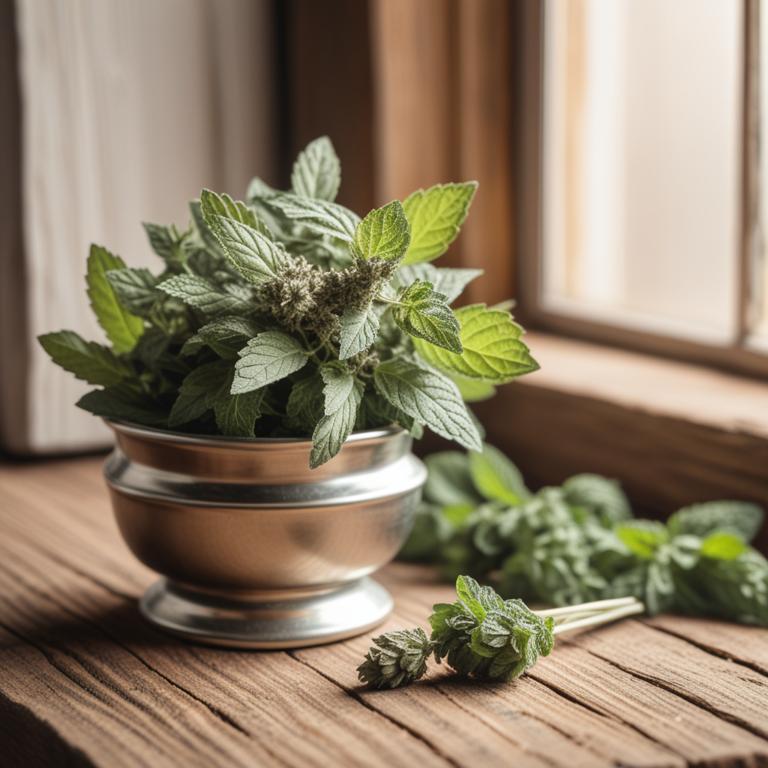
Throat Irritation Relief: Natural Causes and Effective Medicinal Herbs
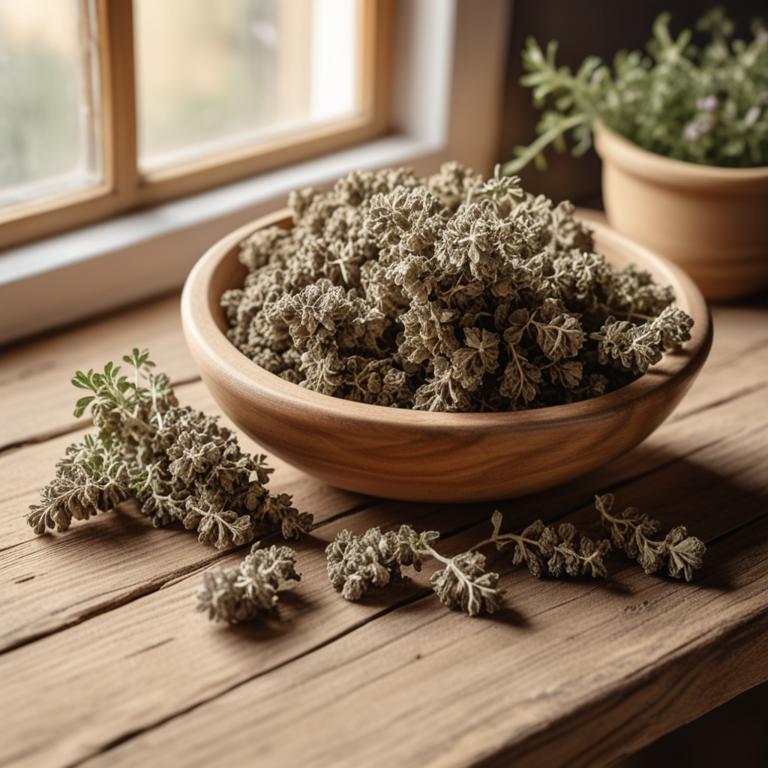
Phlegm: Causes, Herbs, and Medicinal Preparations for Relief
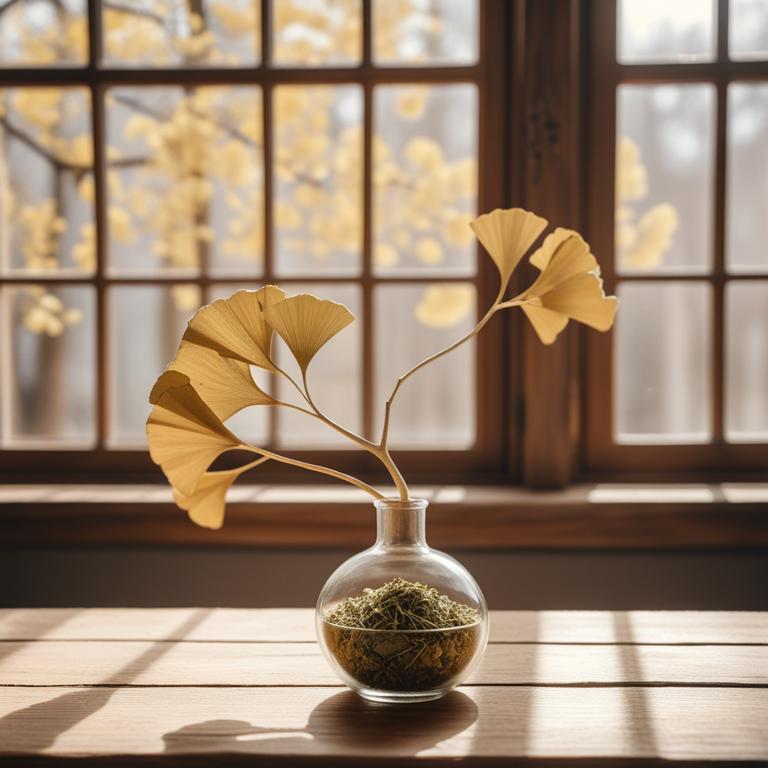
Altitude Sickness Prevention: Causes, Medicinal Herbs, and Natural Remedies
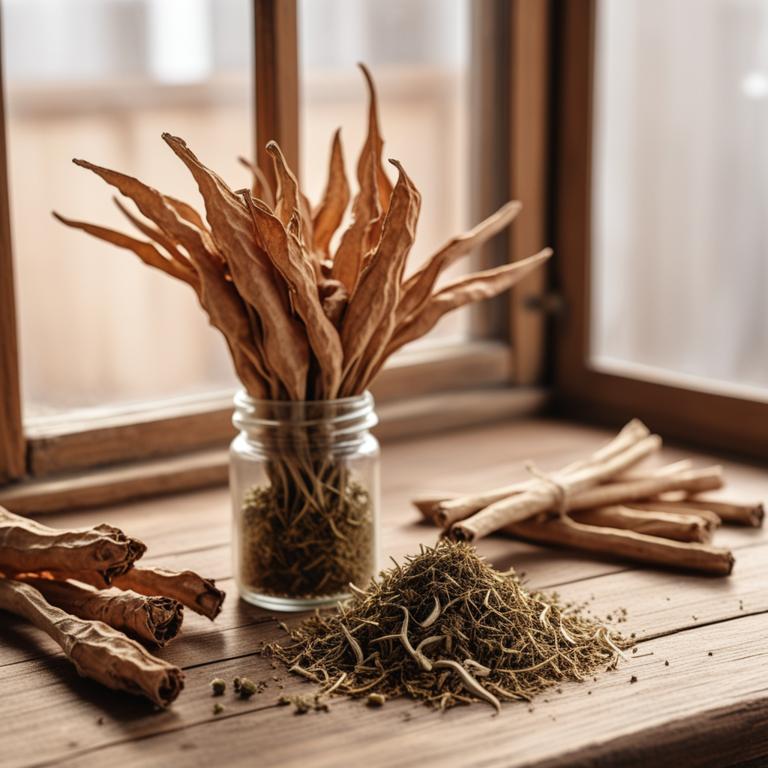
Cough Causes and Natural Cures: The Power of Herbal Preparations




